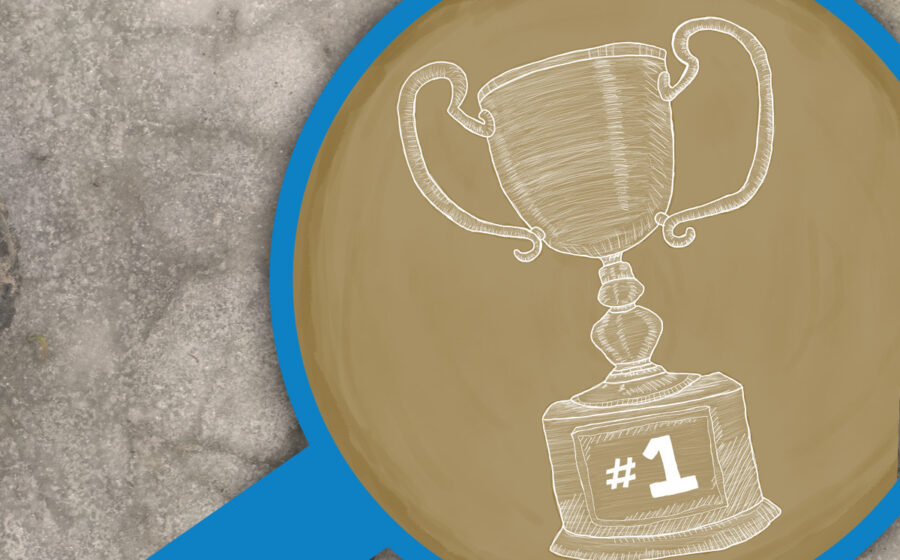[S]ince 2002 the specialty coffee community at large has gathered white-knuckled around convention center stages, livestream webcasts, and rapid-fire Twitter feeds to watch the caffeinated Olympics: regional, national, and international coffee competitions like the Barista Championships, Brewer’s Cup, and Cup Tasters Championship.
Among these, the Barista Championship remains the biggest draw. For fifteen nail-biting minutes, individual baristas create and present a selection of espresso-based drinks before a panel of sensory judges. At the same time, they’re scrutinized by technical judges on efficiency, cleanliness, and consistency under pressure. Marks are given not only for a drink’s flavor and appearance but for the barista’s ability to articulate cup characteristics, communicate knowledge about the coffee’s origin and process, and convey professionalism and dedication to the craft. For competing baristas, preparation lasts months—writing and memorizing a routine, selecting and dialing in super special coffees, and honing bar skills until not a single ground goes wasted.
Once the stage lights have dimmed and a winner is selected, how much of that practice, planning, and focus translates to real life? Do the standards and practices set by competition have a trickle-down effect to the café?
Once the stage lights have dimmed and a winner is selected, how much of that practice, planning, and focus translates to real life?
“Not necessarily,” says Charles Babinski, 2015 Southwest Regional Barista Champion and co-owner (along with 2008 US Barista Champion Kyle Glanville) of Los Angeles’ G&B Coffee and Go Get ‘Em Tiger. “When I started competing, in 2008, it seemed like people talked about the rules as a great way to teach people standard bar skills—using certain towels for certain tasks, economy of movement, organization, that sort of stuff. Back then, it was more about teaching somebody the baseline skills of what you would need to be on bar. If you could check all those boxes, then that was a good start.”
While those skills are still necessary, and can be elevated to an art by competition, Charles says, “Coffee’s come a long way in that time, and the competition has changed a lot. It’s not so much about teaching as it used to be; it’s more skewed away from first-time competitors and toward super-competitors. There’s less of a chance of someone coming from nowhere and having some success.”
Veteran USBC and WBC head judge Aaron Ultimo, owner of Philadelphia’s Ultimo Coffee, agrees to some extent. While he doesn’t look for competition-worthy skills when he’s hiring new employees, Aaron does use the technical requirements from competition as a sort of checklist for bar training. “When I hire somebody, I always look at the person more than their experience. We can always train people, but I can’t make someone’s personality,” Aaron says. “The USBC and WBC standards that exist, though, we try to implement them in our shops. . . . The competitions have definitely reinforced a standard operating procedure, so to speak.”
For Aaron, his experience on the other side of the competition table has also assisted his ability to own and operate a cutting-edge coffee shop. “My experience as a judge and tasting coffees from all over has definitely informed my palate,” he says, “and I guide what we do behind the bar to keep up with what’s out there.” (Since Ultimo Coffee routinely winds up on national and even international “Best Of” lists, it’s hard to deny that all that tasting has done its owner some degree of good.)
Katie Carguilo, my colleague at Counter Culture Coffee and the 2012 US Barista Champion, has a slightly different use for her competitor’s skills, working alongside a green-buying team to source, cup, and contract some of the world’s best coffees—a task she prepared for, in part, with her competitive history. “We all know that to win a barista competition you need great coffee. There’s a lot of great-tasting coffee in the world, but there are some origins or projects that [Counter Culture’s] coffee department specifically seeks out because they have a flavor profile we want to promote or are representative of a project/initiative we want to support.” Katie’s winning coffee, Haru from Yirgacheffe, Ethiopia, was one such project, and her showcase of it onstage inspired it to become not only one of Counter Culture’s best-loved coffees, but also shone a spotlight on washed Ethiopians for espresso—not particularly standard café practice previously, given the coffees’ delicate, floral profile.
Perhaps the main impact of competition isn’t in creating an army of exquisite baristas, then, but in simply showing us all what’s possible with a little creativity, dedication, and sheer love of the sport. As long as competitions continue to push new faces, new talents, and new approaches into the spotlight, and as long as novice baristas continue to be inspired by their winningest heros, we say: game on.
—Erin Meister, better known as just Meister, is a writer and part of Counter Culture’s educational department in New York City.










